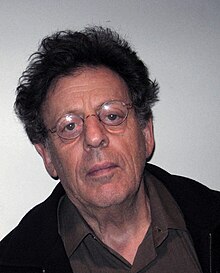
The American Civil War was a civil war in the United States between the Union and the Confederacy, which was formed in 1861 by states that had seceded from the Union. The central conflict leading to war was a dispute over whether slavery should be permitted to expand into the western territories, leading to more slave states, or be prohibited from doing so, which many believed would place slavery on a course of ultimate extinction.

Robert Edward Lee was a Confederate general during the American Civil War, toward the end of which he was appointed the overall commander of the Confederate States Army. He led the Army of Northern Virginia, the Confederacy's most powerful army, from 1862 until its surrender in 1865, earning a reputation as a skilled tactician.

Ulysses S. Grant was the 18th president of the United States, serving from 1869 to 1877. As commanding general, Grant led the Union Army to victory in the American Civil War in 1865.

George Edward Pickett was a career United States Army officer who became a major general in the Confederate States Army during the American Civil War. He is best remembered for being one of the commanders at Pickett's Charge, the futile and bloody Confederate offensive on the third day of the Battle of Gettysburg that bears his name.
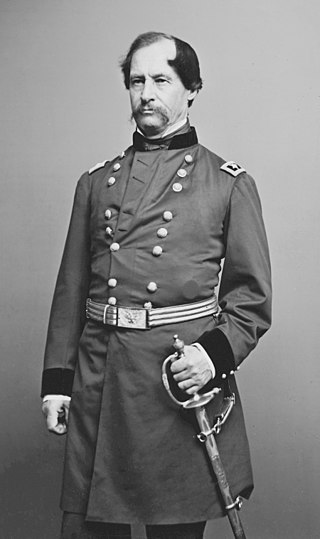
David Hunter was an American military officer. He served as a Union general during the American Civil War. He achieved notability for his unauthorized 1862 order emancipating slaves in three Southern states, for his leadership of United States troops during the Valley Campaigns of 1864, and as the president of the military commission trying the conspirators involved with the assassination of U.S. President Abraham Lincoln.

Mary Ann Todd Lincoln served as the First Lady of the United States from 1861 until the assassination of her husband, President Abraham Lincoln, in 1865.
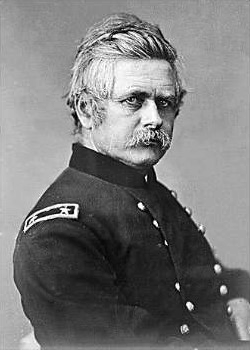
Edward Otho Cresap Ord, frequently referred to as E. O. C. Ord, was an American engineer and United States Army officer who saw action in the Seminole War, the Indian Wars, and the American Civil War. He commanded an army during the final days of the Civil War, and was instrumental in forcing the surrender of Confederate General Robert E. Lee. He also designed Fort Sam Houston. He died in Havana, Cuba of yellow fever.

There is widespread disagreement among historians about the turning point of the American Civil War. A turning point in this context is an event that occurred during the conflict after which most modern scholars would agree that the eventual outcome was inevitable. The near simultaneous Battle of Gettysburg in the east and fall of Vicksburg in the west, in July 1863 is widely cited as the military climax of the American Civil War. Several other decisive battles and events throughout the war have been proposed as turning points. The events are presented here in chronological order with only the positive arguments for each given.

The Battle of Appomattox Court House, fought in Appomattox County, Virginia, on the morning of April 9, 1865, was one of the last, and ultimately one of the most consequential, battles of the American Civil War (1861–1865). It was the final engagement of Confederate General in Chief Robert E. Lee and his Army of Northern Virginia before they surrendered to the Union Army of the Potomac under the Commanding General of the United States Army, Ulysses S. Grant.
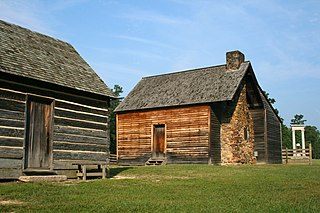
Bennett Place is a former farm and homestead in Durham, North Carolina, which was the site of the last surrender of a major Confederate army in the American Civil War, when Joseph E. Johnston surrendered to William T. Sherman. The first meeting saw Sherman agreeing to certain political demands by the Confederates, which were promptly rejected by the Union cabinet in Washington. Another meeting had to be held to agree on military terms only, in line with Robert E. Lee’s recent surrender to Ulysses S. Grant. This effectively ended the war.

The eastern theater of the American Civil War consisted of the major military and naval operations in the states of Virginia, West Virginia, Maryland, and Pennsylvania, the national capital in Washington, D.C., and the coastal fortifications and seaports of North Carolina. The interior of the Carolinas were considered part of the western theater, and other coastal areas along the Atlantic Ocean were part of the lower seaboard theater.

Jubilee (1966) is a historical novel written by Margaret Walker, which focuses on the story of a biracial slave during the American Civil War. It is set in Georgia and later in various parts of Alabama in the mid-19th century before, during, and after the Civil War.

Elizabeth Hobbs Keckley was an American seamstress, activist, and writer who lived in Washington, D.C. She was the personal dressmaker and confidante of Mary Todd Lincoln. She wrote an autobiography.
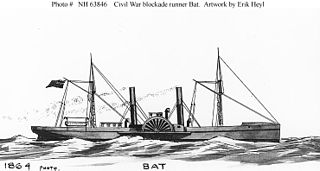
USS Bat was a steamer captured by the Union Navy during the American Civil War. She was used by the Union Navy as a gunboat in support of the Union Navy blockade of Confederate waterways. She was also later assigned to carry President Abraham Lincoln to Richmond, Virginia.

Charles Marshall was a Confederate military officer during the American Civil War. Marshall served as an aide de camp, assistant adjutant general and military secretary to Gen. Robert E. Lee, and later worked to establish the Lost Cause and monuments to his former comrades.

The McLean House near Appomattox, Virginia is within the Appomattox Court House National Historical Park. The house was owned by Wilmer McLean and his wife Virginia near the end of the American Civil War. Hosted by Union General Ulysses S. Grant, the house served as the location of the surrender conference for the Confederate army of General Robert E. Lee on April 9, 1865, after a nearby battle.

The Clover Hill Tavern with its guest house and slave quarters are structures within the Appomattox Court House National Historical Park in Appomattox County, Virginia. They were registered in the National Park Service's database of Official Structures on October 15, 1966.

The conclusion of the American Civil War commenced with the articles of surrender agreement of the Army of Northern Virginia on April 9, at Appomattox Court House, by General Robert E. Lee and concluded with the surrender of the CSS Shenandoah on November 6, 1865, bringing the hostilities of the American Civil War to a close. Legally, the war did not end until a proclamation by President Andrew Johnson on August 20, 1866, when he declared "that the said insurrection is at an end and that peace, order, tranquillity, and civil authority now exist in and throughout the whole of the United States of America."

Operator 13 is a 1934 American pre-Code romance film directed by Richard Boleslawski and starring Marion Davies, Gary Cooper, and Jean Parker.

On the onset of the American Civil War in April 1861, Ulysses S. Grant was working as a clerk in his father's leather goods store in Galena, Illinois. When the war began, his military experience was needed, and congressman Elihu B. Washburne became his patron in political affairs and promotions in Illinois and nationwide.
